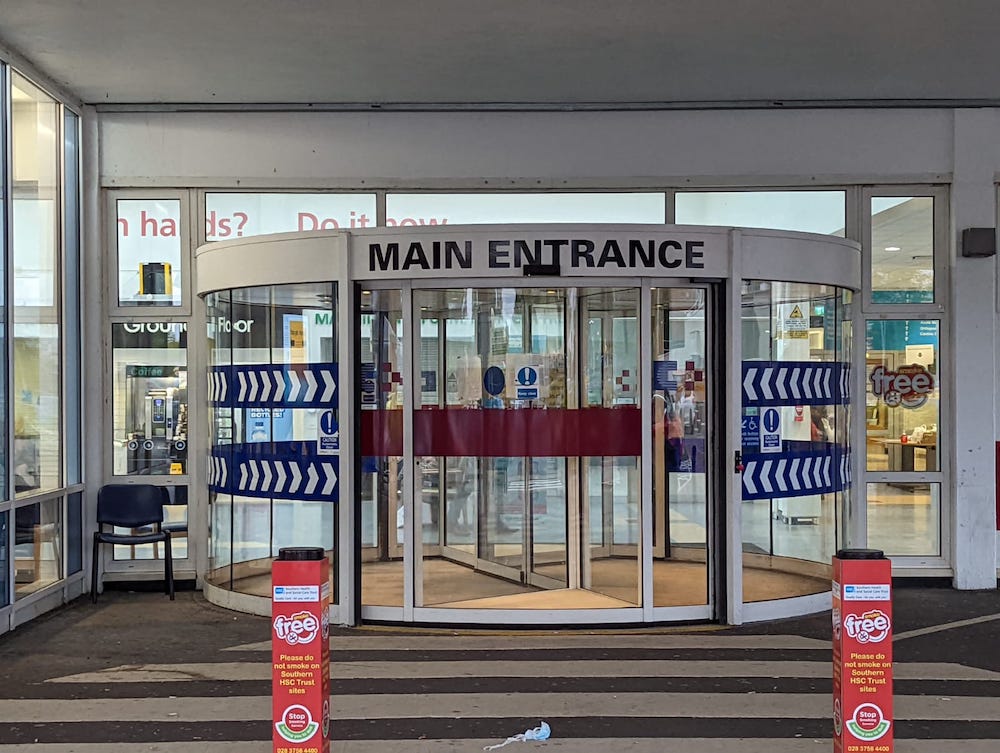
Despite predictions it would manage to break even this financial year, the Southern Health and Social Care Trust is now expected to record a deficit of £1 million, according to its finance director.
Speaking at a meeting of the Trust’s board recently, the Trust’s director of finance, procurement and estate, Catherine Teggart said that by the end of month nine (December), an overspend of £1 million is now predicted by the end of this financial year.
“At the end of December, the Trust is reporting a deficit of £2.7 million,” Ms Teggart told the board.
“We did receive in year additional funding to bring our overall budget up to £875 million for the financial year.
“This funding was received for non-recurrent Covid-19 funding and high cost drugs. We had been anticipating an overall break even position at year end. However, given some of the high costs that have come through, particularly in payroll, we are now predicting an overspend, deficit position, of £1 million at year end.
“That will be dependent on a reduction on some of the off-contract agency spend in relation to that target that we have been set by the department of a reduction of £2.507 million in this financial year.”
In terms of payroll, the spend is £10 million over budget and stands at £439 million at the end of December.
The main areas of overspend continue to be in medical and nursing, which have expenditure in excess of budget of £6.8 million and £8.6 million respectively, according to an executive summary of the Trust’s financial performance report.
Ms Teggart also told the board that £28.5 million of agency spend relates to off contract agency and, when compared to the Trust’s cumulative spend at December 2021, off contract agency spend has increased by roughly 34 per cent this financial year.
“We need to bring down payroll costs for the remainder of the financial year,” said Ms Teggart.
“We have gone outside of our spending forecast and that was due to the fact there was considerable growth in service and staff sickness.
“In order to try and bring it back into line with our budget and forecast we have established a workforce group that will look at a ward by ward analysis of need and we have started that work.
“We will be setting targets within each area to try and drive that spend down within the remaining months of this financial year, it still is a risk and we are always at risk in terms of where we are with the service.
“We have had considerable pressures on the service in terms of growth and additional agency staff. The other thing to note is there will be a new contract for agency staff that will, hopefully, on the nursing side, bring down the use of off contract agency and we will monitor that closely.”
As for prompt payments, the Trust failed to meet its prompt payment target in December with just 87.8 per cent of bills paid within 30 days of receipt.
According to the executive summary the cumulative position to date is now 93.9 per cent and the Trust is now “just below meeting the target of 95 per cent within 30 days on the cumulative basis”.
“The 95 per cent prompt payment target was missed by 1,687 invoices in December,” states the executive summary.
“The key supplier types that did not meet prompt payment were as follows: agency (72.04 per cent inside prompt payment); pharmacy (79.4 per cent inside prompt payment); estates (79.95 per cent inside prompt payment) and saffron catering (82.23 per cent inside prompt payment).
It also notes that January’s prompt payment statistics may be impacted as “staff continue to work through the backlog from December 2022”.





